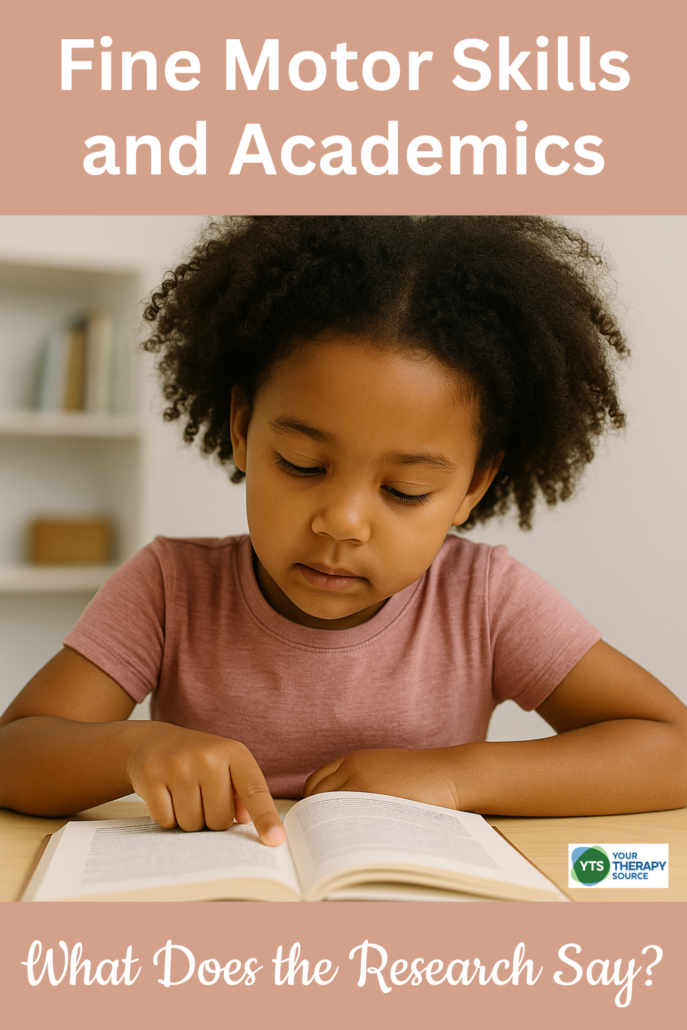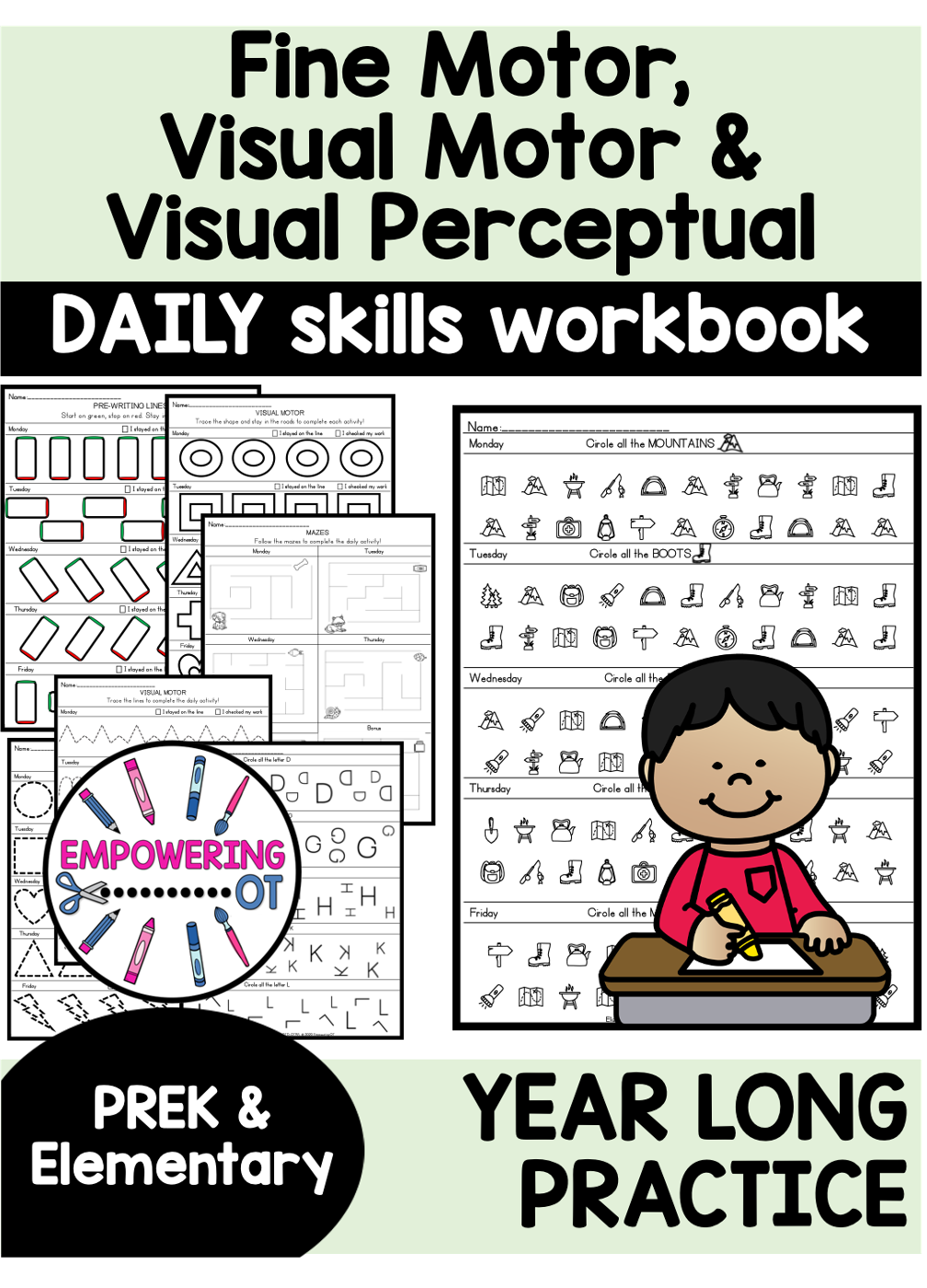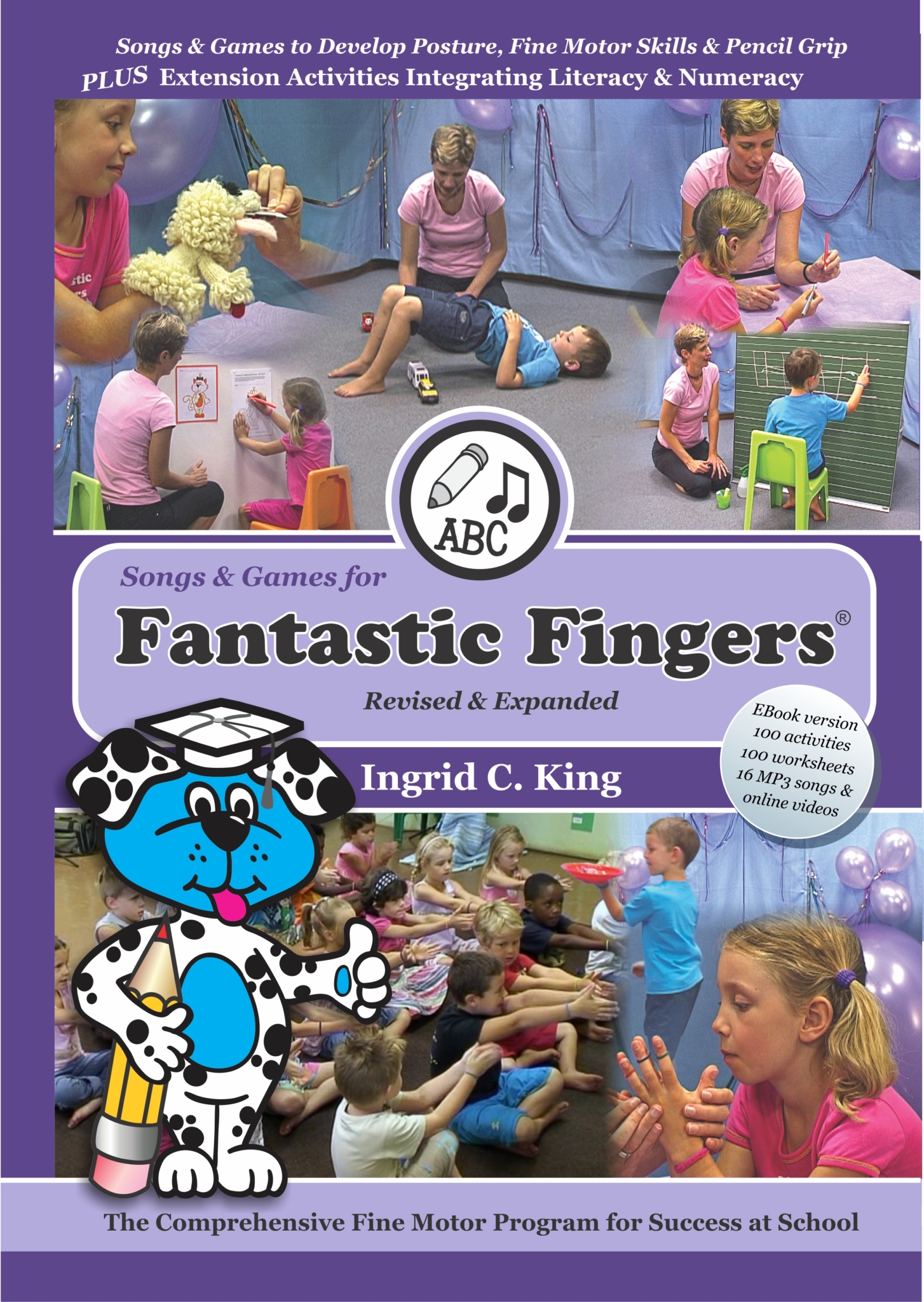Fine Motor Skills and Academics: What Does the Research Say?
When children start school, we usually focus on reading, writing, and math. There is another area that plays a big role in school success: fine motor skills. These are the small movements of the hands and fingers that help children hold a pencil, cut with scissors, or button a shirt. Recent research looked closer at fine motor skills and academics in children. A 2025 research review by Li and colleagues looked at how fine motor skills relate to academic performance. The study reviewed 11 high-quality studies involving children between the ages of 3 and 10. The results provide helpful insight for teachers, therapists, and parents.

What Did the Research Show on Fine Motor Skills and Academics?
The researchers found clear links between fine motor skills and success in reading and math. In simple terms, children who develop strong fine motor skills are more likely to succeed in early academic tasks. These skills help them feel confident and capable in the classroom. Here is what they discovered:
- Children with stronger fine motor skills tend to perform better in math.
- Visual-motor integration, or coordinating the eyes and hands, was especially important for early math development.
- Visual-motor integration also supports reading by helping children track text, write letters, and stay focused.
- Fine motor coordination, such as using small tools or controlling finger movements, showed a smaller but still meaningful connection to reading performance.

Fine Motor Skills Worksheets for ALL YEAR LONG
Why Does This Matter?
Strong fine motor skills help children succeed not just with school tasks, but also with focus, thinking, and self-control.
- Many classroom activities, such as writing, cutting, and using school tools, depend on fine motor coordination.
- Children with weaker fine motor skills may struggle to keep up or feel frustrated during hands-on tasks.
- Practicing fine motor skills builds confidence and independence.
- These skills are connected to brain development and thinking abilities.
- Improving fine motor skills can also support attention, problem-solving, and emotional regulation.

10 Practical Ways to Support Fine Motor Skills and Academics
Here are ten simple ways that parents, teachers, and therapists can help children build fine motor skills and support their learning:
- Include hands-on play every day
Use building toys, art materials, puzzles, and small objects to build hand strength and coordination. - Write and draw on vertical surfaces
Try using easels or chalkboards. This helps improve shoulder and wrist strength, which supports pencil control. - Use finger games and songs
Simple activities like finger plays, clapping patterns, and hand motions help with control and coordination. - Practice copying shapes and patterns
Activities like tracing, drawing, or copying simple lines and forms build visual-motor integration. - Add fine motor tools to play centers
Use items like tongs, tweezers, stamps, and play dough to encourage small hand movements during play. - Keep writing tasks short and manageable
Let children trace or write in short sessions so they can build skill without feeling overwhelmed. - Make math activities hands-on
Use blocks, beads, or counting objects to combine fine motor skill building with number concepts. - Support independence with self-care
Practice buttoning, zipping, or opening snack containers to build coordination and confidence. - Encourage drawing and storytelling
Have children draw a picture and then describe it. This strengthens both motor and language skills. - Limit screen time when possible
Too much time on tablets can take away from active, hands-on learning. Make time for real-world play and exploration.

Fantastic Fingers® Fine Motor Program
Want to Learn More?
Explore more about the connection between fine motor skills and learning:
- Fine Motor Skills and Language Development
- Fine Motor Skills: Handwriting, Typing and Reading – What Does the Research Say?
- Self-Regulation and Fine Motor Skills
- Effects of Tablet Use on Fine Motor Skills
- How Much Fine Motor Practice Do Kids Get During the School Day?
Reference
Li, Y., Wu, X., Ye, D., Zuo, J., & Liu, L. (2025). Research progress on the relationship between fine motor skills and academic ability in children: a systematic review and meta-analysis. Frontiers in Sports and Active Living, 6, 1386967.



